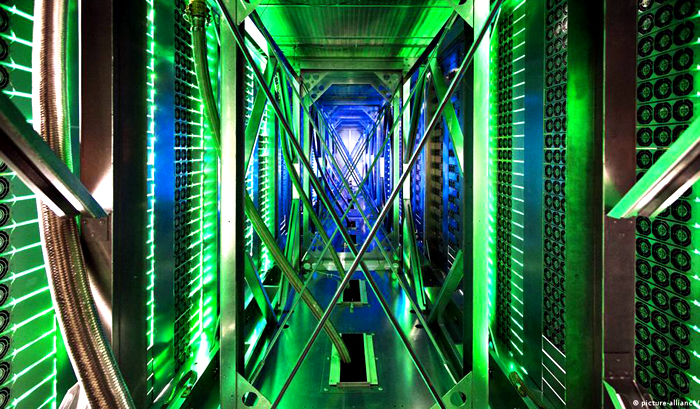How things went from bad to worse for data centres in Europe

Politicians with big eyes talked about investments and dreamed of making global tech hubs.
PARIS (AFP) – When we use Zoom, upload a file to the cloud, or stream a video, our computers connect to huge warehouses full of servers to store or get information.
Not too long ago, European countries were falling over themselves to welcome the companies that ran these warehouses, which are called “data centres” or “bit barns.”
Politicians with big eyes talked about investments and dreamed of making global tech hubs.
The dream turned bad, though.
People were shocked by how much energy and water were needed to power and cool these server farms.
Last year, the industry used 14% of Ireland’s power. London warned home builders that power shortages caused by bit barns could affect new projects, and Amsterdam said it had no more room for the warehouses.
The situation then got worse.
The war in Ukraine helped start an energy crisis across the continent. As a result, people’s bills are going up and some countries are worried about running out of energy.
Related: European stock futures go down, and a surprise rise in U.S. inflation weighs on sentiment.
Dwayne Monroe, a critical blogger, told AFP that data centres will be a target. He said that if Europe can’t solve its energy crisis, the focus will only grow on data centres.
Local opposition and grassroots campaigns have already stopped projects by Amazon, Google, and Meta this year in France, Luxembourg, and the Netherlands.
Even though the Irish government said it still supported the industry, it put strict limits on what could be built until 2028.
The data industry says it is being unfairly targeted and points out that it is trying to use green energy. It also says that outsourcing storage to “bit barns” has helped cut down on energy use.
“The Veil of Shadow”
Ireland is the best place to see how these arguments play out.
Activists are fighting for a wide range of causes and using local forums to make their points.
Madeleine Johansson, a councillor in Dublin for the People Before Profit party, which is campaigning on the issue, says, “They take up a lot of space but don’t really create any jobs.”
Johansson recently got a motion to ban the centres passed in her council area. This caused a huge fight with the national government that hasn’t been solved yet.
Dylan Murphy of Not Here, Not Anywhere, one of several climate groups in Ireland working on the issue, has filed a motion in his local council in Fingal asking companies to say what kind of information they have.
He called the lack of clarity about what data is actually being stored in these data centres a “veil of shadow.”
The data industry says that it would be impossible to share that information.
Michael McCarthy, who works for a lobbying group called Cloud Infrastructure Ireland, said that activists had lost the argument about sustainability and were now throwing everything against the wall.
“Data centres definitely use a lot of energy, but they are part of a group that uses a lot of energy,” he said.
McCarthy and others in the business world in other countries say that the real problem is that the U.S. hasn’t put enough money into its energy infrastructure over the years.
He also said that the European industry had promised to stop using carbon by 2030.
And there are still places, like Iceland and Norway, that want data companies to set up shop there.
– Questions over metaverse –
In spite of this, the tech industry keeps coming up with new products that always need a lot of processing power and storage space.
Machine-learning tools, for instance, use a lot of power — Google said earlier this year that they used 10–15 percent of all the energy it used.
The metaverse, a new idea for a 3D internet that Facebook owner Meta is pushing, would also use a lot of energy.
Related: European stocks go up at the start of the day, and good news about deals helps Aveva and Schneider.
Monroe, a critical blogger, thinks that the metaverse will fall apart under its own weight, in part because it needs so much data.
“In order to build the metaverse, Facebook would have to build a network of data centres that could compete with what Amazon, Microsoft, and Google have done for their clouds,” he said.
AFP tried to get a response from Meta.
AFP talked to energy experts who said it would be hard to figure out what the carbon footprint of this kind of innovation would be.
For example, the metaverse could help cut down on pollution in other places by making it less important to travel.
An energy official who didn’t want to be named asked if the best thing to criticise was data centres when cryptocurrencies were so wasteful.
The International Energy Agency says that in 2020, data centres used about 1% of the world’s energy, while cryptocurrency mining used about 50% of that amount.
McCarthy said that people who don’t like data centres should think about how much they are a part of everyday life, especially since the pandemic.
“They make it possible for us to live and work online, that’s the truth,” he said.





